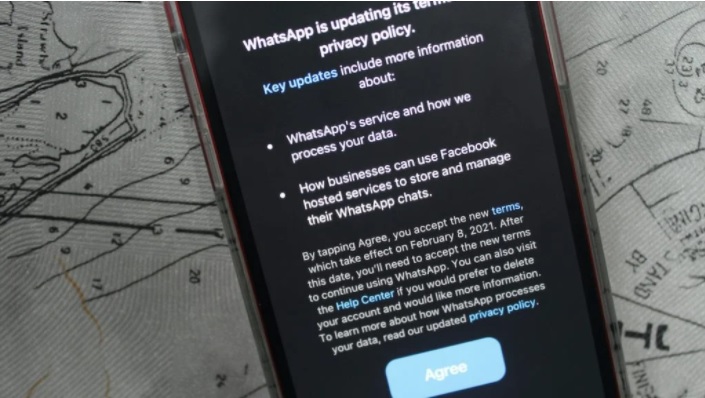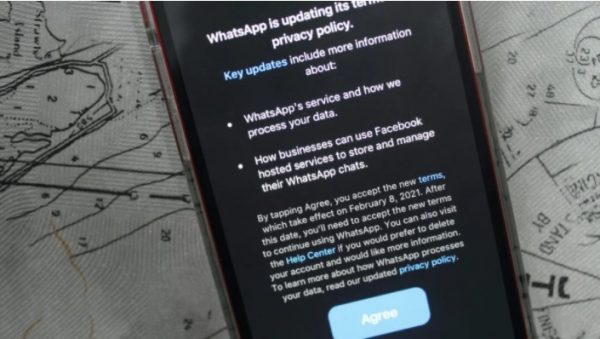WhatsApp recently announced a new batch of terms and conditions that have had everyone raising an eyebrow or two. I am underplaying reactions to the news because it has been closer to outrage than anything else. You would notice those terms and conditions upon trying to install a new update. If I am correct, you already accepted and got it over with.
Read more about Tech
Now, I would not have thought much of it if I didn’t see billionaire Elon Musk’s viral tweet urging users to move to a rival messaging app, Signal as an alternative. Even Jack Dorsey endorses Signal. So let’s look at the facts for clarity sake for, as they say, the devil is in the detail.
At the heart of the furore has been the fact that WhatsApp will now share user information with its sister app, Facebook. Users are not too pleased and given Facebook’s recent history, they have good reason to be. On a closer look, the change is really not worth the fuss at all. WhatsApp has slowly been integrating with other Facebook-owned apps for years now and what we are seeing is the latest event in the process.
Mark Zuckerberg mentioned in 2019 that making all the apps in Facebook’s family “interoperable” is a goal in the medium and long terms. What this means is that WhatsApp has been sharing your user data with Facebook for years by the time you realize. Especially, your registration details (phone number and as a result even location data), IP address, service-related info such as how you interact with others and business and what mobile devices you use. Now make no mistake.
User data does not include details from your chats as those are encrypted from end to end and are only held on your device and not on WhatsApp’s servers. In places like India where WhatsApp Pay is already in use, data sharing includes what services users are paying for. Unfortunately, we do not have the option of cancelling data sharing for Facebook in Africa as is the case in the EU and North America.
With data sharing, WhatsApp policy changes have generally built around how to cater to businesses more with its huge number of users who now run into billions. WhatsApp caters to over 50 million businesses and offering them user data especially where relevant is important in the company’s bid to monetize its services and generate more revenue by itself. Data sharing may involve Facebook as a “third party” most companies have official pages.
Sign up to the Connect Nigeria daily newsletter
WhatsApp has stated that users must either accept its new policy changes by February 8 or decline and by so doing ditch WhatsApp entirely for another messaging platform. If I am correct, a whole lot of you reading this have already accepted and may not have the appetite to get used to a new platform.
If I am wrong, however, Telegram and Signal have had massive hype in the light WhatsApp’s controversial policy change. But none of them is quite like WhatsApp in operation or sheer numbers. Signal is an interesting alternative, however. The app is a creation of former WhatsApp boss, Brian Acton and Moxie Marlinspike.
What would interest is that Signal is owned by the Signal Foundation, a not-for-profit organization like Blender and Krita Painting Application? Signal’s creed is “Say Hello to Privacy” and tells you what they are about. In fact, Signal’s encryption protocol is the template for WhatsApp’s own end to end encryption. It’s also totally free to use. Telegram is largely known already as WhatsApp for people who want to build a huge audience for any reason.
Telegram allows huge groups with up to 200,000 members. The app unlike WhatsApp only allows end to end encryption for secret chats and does not support video or voice calls. Until recently, WhatsApp didn’t have self-destructing messages like Telegram. Telegram allows you to use a public username as opposed to your personal contact on WhatsApp.
On the whole, I do not think it’s worth leaving WhatsApp, this whole episode. Let’s face it, many people would not budge simply because WhatsApp has numbers that no one else has as well as the fact that they have already built businesses there but with tech, options are key in ensuring everyone stays in check and given how Facebook didn’t cover itself in glory in the Cambridge Analytica episode from years back, people are right to be scared of a company that only seems to care about profits nowadays. I find Signal interesting on so many levels. One of them is the fact that it’s code is open source and its funding is community-sourced. The model is interesting.
Featured Image Source: Fossbyte
Got a suggestion? Contact us: [email protected]


